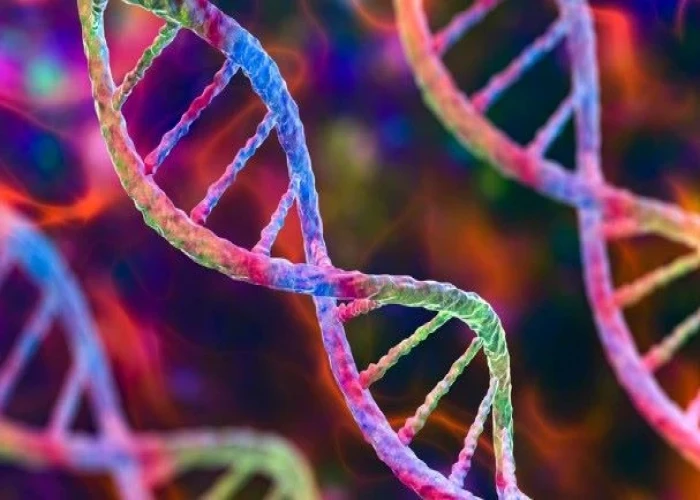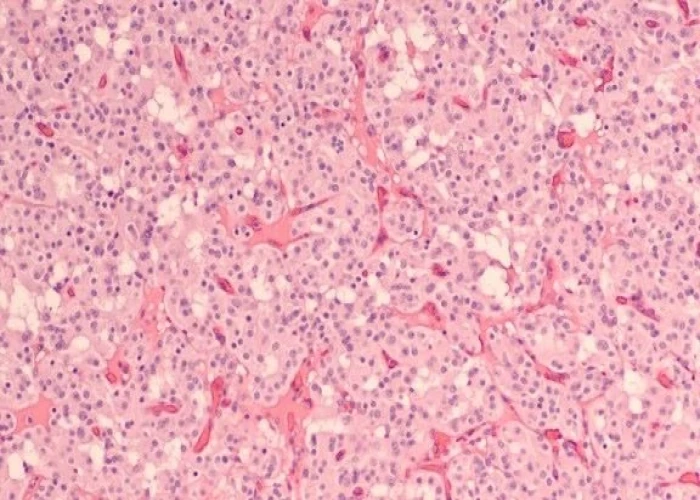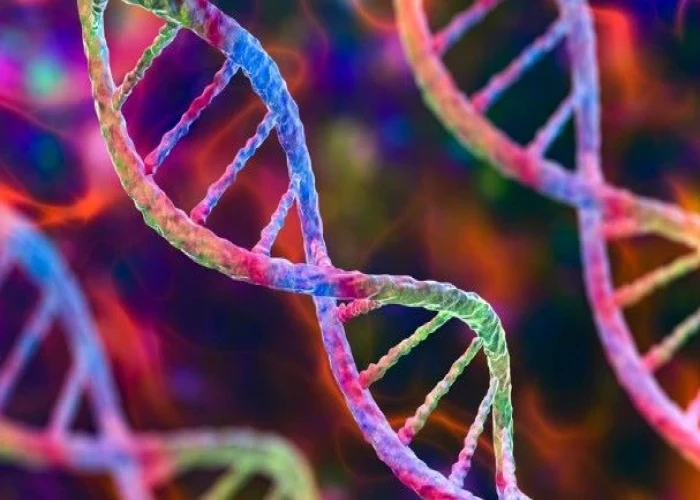 Welcome
Welcome
“May all be happy, may all be healed, may all be at peace and may no one ever suffer."
Prader-Willi syndrome

Prader-Willi syndrome (PWS) is a rare genetic disorder that affects approximately 1 in 10,000 to 1 in 25,000 people. PWS is caused by a deletion or loss of function of genes on the paternal chromosome 15.
PWS is characterized by several physical, behavioral, and cognitive symptoms, which can vary in severity and presentation. Some of the common physical features of PWS include hypotonia (low muscle tone) and difficulty feeding during infancy, short stature, and abnormal body composition (excessive body fat, reduced muscle mass).
Behavioral and cognitive symptoms of PWS may include hyperphagia (an uncontrollable urge to eat), behavioral and emotional problems, intellectual disability or learning difficulties, obsessive-compulsive tendencies, and a high pain threshold.
There is currently no cure for PWS, and treatment is focused on managing symptoms and improving quality of life. This may include a combination of strategies such as growth hormone therapy to improve height and body composition, nutritional and dietary interventions to manage hyperphagia, behavioral therapy and support for social and emotional difficulties, and medication to manage behavioral symptoms.
Early diagnosis and intervention is important in managing PWS symptoms and improving outcomes. A multidisciplinary team, including medical specialists, therapists, and educators, can help provide comprehensive care and support for individuals with PWS and their families.
Research Papers
Disease Signs and Symptoms
- Weak muscle tone (hypotonia)
- Small testicles or swelling in the scrotum
- Children may be born with almond-shaped eyes, a narrowing of the head at the temples, a turned-down mouth and a thin upper lip.
- Males may have a small penis and scrotum.
- The testicles may be small or not descended from the abdomen into the scrotum (cryptorchidism).
Disease Causes
Prader-Willi syndrome
Prader-Willi syndrome is a genetic disorder, a condition caused by an error in one or more genes. Although the exact mechanisms responsible for Prader-Willi syndrome haven't been identified, the problem lies in the genes located in a particular region of chromosome 15.
With the exception of genes related to sex characteristics, all genes come in pairs — one copy inherited from your father (paternal gene) and one copy inherited from your mother (maternal gene). For most types of genes, if one copy is "active," or expressed, then the other copy also is expressed, although it's normal for some types of genes to act alone.
Prader-Willi syndrome occurs because certain paternal genes that should be expressed are not for one of these reasons:
- Paternal genes on chromosome 15 are missing.
- The child inherited two copies of chromosome 15 from the mother and no chromosome 15 from the father.
- There's some error or defect in paternal genes on chromosome 15.
In Prader-Willi syndrome, a defect on chromosome 15 disrupts the normal functions of a portion of the brain called the hypothalamus, which controls the release of hormones. A hypothalamus that isn't functioning properly can interfere with processes that result in problems with hunger, growth, sexual development, body temperature, mood and sleep.
In most cases, Prader-Willi syndrome is caused by a random genetic error and is not inherited. Determining which genetic defect caused Prader-Willi syndrome can be helpful in genetic counseling.
Disease Prevents
Prader-Willi syndrome
If you have a child with Prader-Willi syndrome and would like to have another baby, consider seeking genetic counseling. A genetic counselor may help determine your risk of having another child with Prader-Willi syndrome.
Disease Treatments
Early diagnosis and treatment can improve the quality of life for people with Prader-Willi syndrome. A team of health professionals will likely work with you to manage the condition.
Your team may include a doctor who treats hormonal disorders (endocrinologist), behavior specialists, a dietitian, physical and occupational therapists, a mental health professional, a geneticist, and other specialists as needed.
Although specific treatments vary depending on symptoms, most children with Prader-Willi syndrome will need the following:
- Good nutrition for infants. Many infants with Prader-Willi syndrome have difficulty feeding due to decreased muscle tone. Your child's pediatrician may recommend a high-calorie formula or special feeding methods to help your baby gain weight and will monitor your child's growth.
- Human growth hormone (HGH) treatment. HGH treatment in children with Prader-Willi syndrome helps increase growth, improves muscle tone and decreases body fat. A doctor who treats hormonal disorders (endocrinologist) can help determine whether your child would benefit from HGH and discuss any risks. A sleep study is usually recommended before starting growth hormone treatment.
- Sex hormone treatment. Your endocrinologist may suggest that your child take hormone replacement therapy (testosterone for males or estrogen and progesterone for females) to replenish low levels of sex hormones. Hormone replacement therapy usually starts when your child reaches the normal age for puberty and can help reduce the risk of developing thinning of the bones (osteoporosis). Surgery may be needed to correct undescended testicles.
- Weight management. A dietitian can help you develop a healthy, reduced-calorie diet to help manage your child's weight while ensuring proper nutrition. A restricted-calorie diet may require supplemental vitamins or minerals to ensure balanced nutrition. Increasing physical activity and exercise can help manage weight and improve physical functioning.
- Treatment of sleep disturbances. Treating sleep apnea and other sleep problems can improve daytime sleepiness and behavioral issues.
- Various therapies. Your child will likely benefit from a range of therapies, including physical therapy to improve movement skills and strength, speech therapy to improve verbal skills, and occupational therapy to learn everyday skills. Developmental therapy to learn age-appropriate behaviors, social skills and interpersonal skills also may help. In the U.S., early intervention programs with these types of therapy are usually available for infants and toddlers through a state's health department. During school years, educational planning and support can maximize learning.
- Behavior management. Setting strict limits on behavior, schedules and access to food and strict supervision of food intake may be required. Some people may need medication to manage behavior problems.
- Mental health care. A mental health professional, such as a psychologist or a psychiatrist, may help address psychological problems — for example, obsessive-compulsive behaviors, skin picking or a mood disorder.
- Other treatments. These may include addressing specific symptoms or complications identified by eye exams for vision problems, tests for hypothyroidism or diabetes, and examinations for scoliosis.
Transition to adult care
Most people with Prader-Willi syndrome will need specialized care and supervision throughout their lives. Many adults with the disorder live in residential care facilities that enable them to eat healthy diets, live safely, work and enjoy leisure activities.
As your child approaches adulthood, consider these strategies:
- Find local resources and services for adults through your child's school and organizations such as the Prader-Willi Syndrome Association.
- Investigate guardianship issues, wills and special needs trusts that address future care and supervision for your child.
- Talk to your child's doctor for suggestions about making the transition to adult medical care.
Disease Diagnoses
Disease Allopathic Generics
Disease Ayurvedic Generics
Disease Homeopathic Generics
Disease yoga
Prader-Willi syndrome and Learn More about Diseases

Pancreatic cysts

Broken leg

Corns and calluses

Shellfish allergy

Chondrosarcoma

Celiac disease

Bell's palsy

Cough headaches
prader-willi syndrome, প্রডার-উইল সিন্ড্রোম
To be happy, beautiful, healthy, wealthy, hale and long-lived stay with DM3S.
